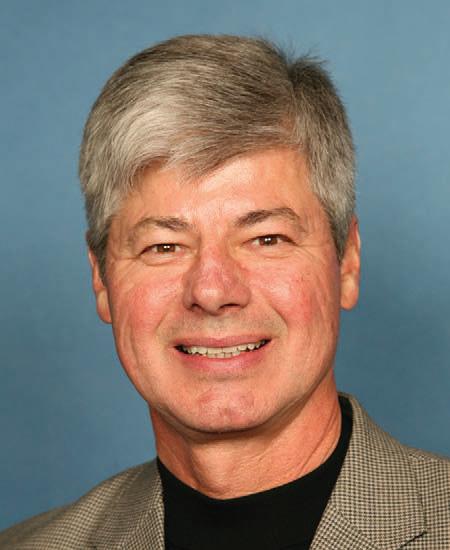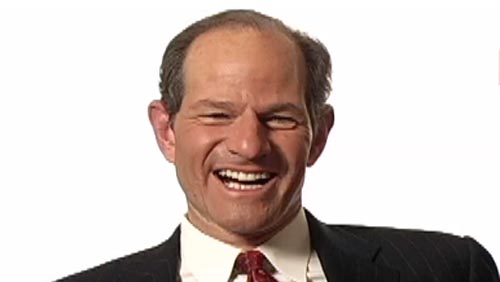Imagine no waiting room at the doctor’s office. Scratch that. Now picture no doctor’s office at all. In this practice, you make appointments via text, video chat or email, and […]
All Articles
The journalistic objectivity which the American press aspire to does not exist as such in Europe, and I say Europe is better off because of that. Peruse the newspapers of […]
Over the past several years, China and Europe have sped by the United States in their development of high-speed rail systems. But now, as the New York Times reports, China might be […]
In the midst of a number of interesting debates over school curriculum in certain states, Oklahoma Governor Brad Henry signed legislation this week ensuring that the state’s public school students […]
Politico reports that the notorious anti-choice congressman Bart Stupak (D-Mich) is retiring. Stupak claims that he abruptly announced his departure on a Friday afternoon for no particular reason. He told […]
We all suspect we’re being watched. Sometimes it’s obvious like when you see CCTV cameras peering at you from every street corner in London (London is perhaps one of the […]
Americans love a redemption story, and Tiger Woods is likely to join a long list of brands that have come back refreshed after a stint in rehab.
More important than the size of government is the kind of authority it wields over its people — and the degree to which it exercises arbitrary power, writes David Boaz.
Researchers have discovered a clue to how different creatures in the animal kingdom create the colorful and patterned body ornamentations that mark their species.
As the campaign in Afghanistan wears on, there is a consensus in the Islamic world that a discernible American retreat from the region is in the works, writes Fouad Ajami.
“How should we begin to make amends for raising a generation obsessed with the pursuit of material wealth and indifferent to so much else?” asks Tony Judt.
Researchers have found a way to prevent and treat type 1 diabetes in mice by using a vaccine to boost the immune system’s natural self-regulation.
Charismatic, forceful leaders have a tendency to produce volatile company performances, writes David Brooks. He imagines an alternate executive model: the “humble hound leader.”
Scientists have found a couple of 1.9-million-year-old skeletons in a South African cave that may be “a Rosetta Stone for defining for the first time what the genus Homo is.”
The intestinal microbes of Japanese people have enzymes that may be particularly suited for digesting the kind of seaweed that is commonly used in sushi rolls.
Male friendships are qualitatively different from female friendships. Men may not be physically or emotionally expressive, but they provide a lot of support for each one another with their presence.
For all the talk about how taxes are too high in the United States, American businesses are paying less now than they used to. In fact, many major corporations don’t […]
Why use boring old bread to make your sandwich, when instead you can plop your bacon, cheese and sauce between two slices of deep-fried meat? It sounds like a sitcom […]
Is the financial crisis the best thing that ever happened to former New York Governor Eliot Spitzer? As Jan Hoffman writes in the New York Times today, two years after he resigned in scandal the Sheriff of Wall Street is back on his horse and charging again toward Wall Street reform. Will this focus on reform help the public forget about his fling with high-end call-girl Ashley Dupré?
“Biologically, oysters are not in the plant kingdom, but when it comes to ethical eating, they are almost indistinguishable from plants,” writes Christopher Cox.
Vice President Joe Biden writes that the country’s new nuclear stance “leaves Cold War thinking behind” and recognizes that nuclear terrorism and proliferation are the biggest dangers to global security.
“Otto Dix is a difficult artist to like,” writes Judith Dobrzynski of the Weimar artist known for his harsh, cruel depictions of social and moral decay. “But admiration is a different thing altogether.”
Economic prognosticators are increasingly looking for indicators in unconventional urban data. The newest offbeat predictors are finding information in obscure places — but can they be trusted in forecasts?
“Non-paternity” (when a child turns out to have a different father than they thought they did) is estimated to be somewhere around 10%. New over-the-counter tests make it easy to find out the truth.
Eli Kintisch suggests scientists may have to attempt some radical fixes to address the shift in global temperature. Should we build an umbrella in space? Reflective panels covering the polar ice?
A new technology called “Skinput” uses bio-acoustic sensors to allow people to use the skin on their fingers and forearms — or any part of their bodies — as touchpads to control mobile devices.
It can be shocking to hear stories about female terrorists like the Russian “black widows” and America’s “Jihad Jane” — particularly because women so rarely turn to violence.
“Those who think of themselves as great fans of progress, of technology’s inexorable march forward, will change their tune as soon as progress destroys something they care deeply about,” writes Nicholas Carr.
Extensive research over the past 40 years shows that sleep deprivation is a quick, inexpensive and effective treatment for depression. So why isn’t this fact more well known?









